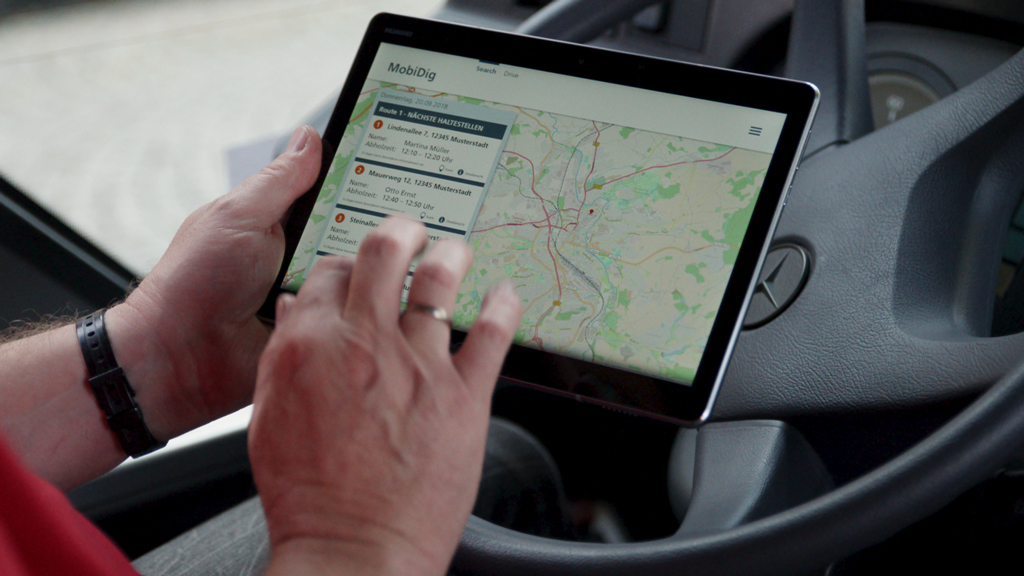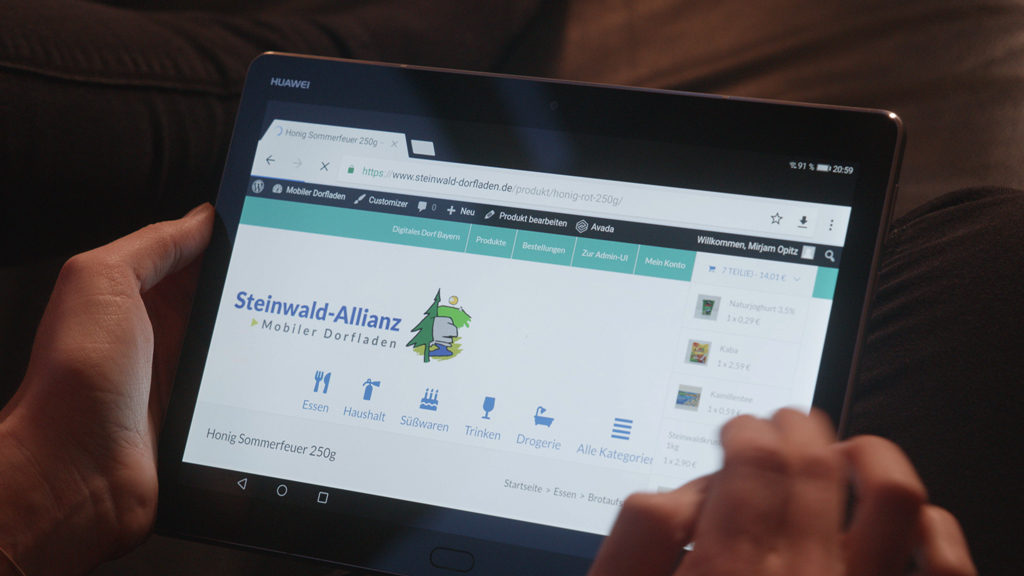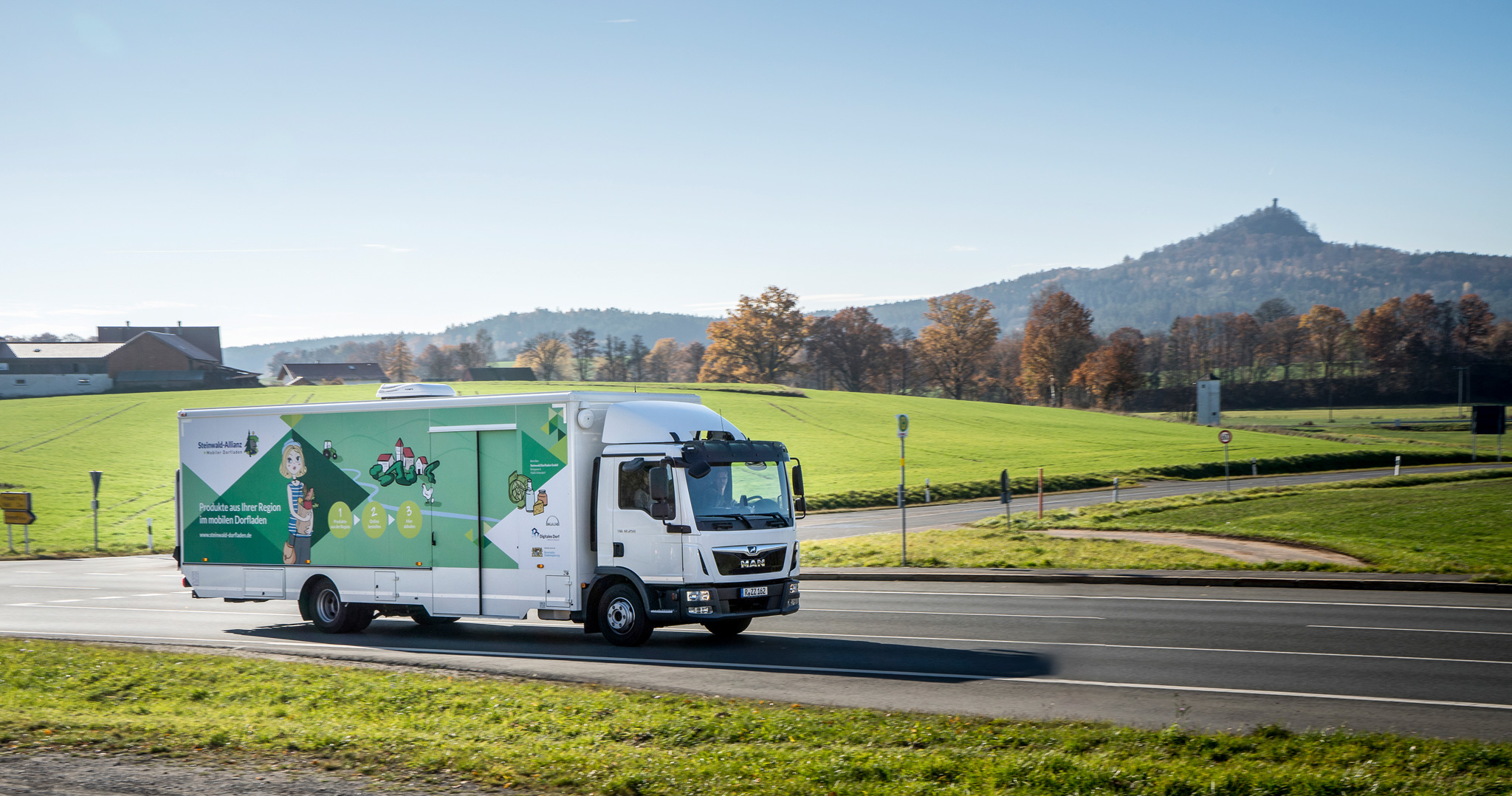Rural areas in Germany are faced with a series of challenges on account of the current demographic changes. Digitalization offers a great deal of potential for preserving public services and turning rural areas back into more attractive places to live and work. Consequently, in an interdisciplinary team, we develop and investigate new digital solutions in meeting household needs, medicine and nursing care, education, and mobility, all of which affect quality of life.
Digitalization in rural areas

Germany consists largely of “rural areas”; in 2015, roughly 18 million people lived in districts classified as “rural.” However, the majority of rural areas currently face a series of challenges: Low population density and forecast population decreases make commercial ventures unprofitable and make it harder to run public services. In turn, this makes life in the country increasingly less attractive for rural residents.
Everyone agrees that this trend must be stopped. One possibility for bringing public services and innovative commercial service offers closer to rural areas, and thus making them more attractive again as places to work and live, is digitalization. The preconditions for digitalizing rural areas are currently being created: over 90 percent of rural households now have a broadband connection of 6 Mbit/sec or faster; about two-thirds have 16 Mbit/sec or faster; and about one-third have 50 Mbit/sec or faster.
Digitalization offers the opportunity to prevent the withdrawal of public services from a region by offering them in a digital form or to improve the quality of existing services.
To date, however, municipalities have shown little inclination to engage with these possibili- ties – often the people responsible know too little about the benefits and the areas in which digitalization can be used. To address this situation, we investigate and illustrate the potential of digitalization for individual areas of life in a series of research projects.
Local supply of regional products

One of the biggest challenges in rural areas is maintaining the supply of food. Residents must increasingly travel long distances to the nearest supermarket, because small stores in rural centers are closing down, while big supermarkets open only in areas with large populations or out of town. As part of the “Digital Village” project, we joined forces with the Fraunhofer Institute for Experimental Software Engineering IESE and the Steinwald-Allianz, an interest group comprising 16 local communities in the rural district of Tirschenreuth in Germany, to create a “Mobile Village Store” designed to maintain the local supply of everyday goods. The central element of the concept is a digital platform connecting the customers, vendors and producers of regional goods. In order to strengthen regional economies, the products of regional producers are given priority.
“A more efficient exchange should be facilitated between home care nursing services, doctors and patients in their homes.”
Improving health care through connectivity
Telemedicine and telecare services can help preserve health care in rural areas at a time when there are shortages of doctors and carers. The use of telemedicine and telecare is not intended to replace regular services completely. However, digitally supported services are faster and more cost effective to access and are independent of the mobility of patients and professional staff. In the “Digital Health Village Oberes Rodachtal” project, we are researching integrated connectivity between citizens and the providers of health and nursing care in the rural district of Kronach in Germany. A digital platform is set to facilitate a more efficient exchange between home care nursing services, doctors and patients in their homes.
Digital skills for increased participation
An important prerequisite for the use of digital services is the Internet and digital skills of citizens. In 2017, 81 percent of the German population was online, but there were large discrepancies according to age and level of education. In the “Digital Village: Living and Educating” project, we are cooperating with the rural district of Tirschenreuth in Germany to develop comprehensive further education offerings on the topic of digitalization. These offerings are aimed primarily at older people with various degrees of background experience. The focus is on casual learning approaches, such as senior centers, volunteer instructors and buddy-type exchanges between young and old, as these non-intimidating methods have proved particularly promising.
Efficient and demand-centered local public transport
Turning our attention to mobility, digital solutions can help strengthen connectivity between different modes of transport and thus supplement the frequently depleted local public trans- port services in rural areas. In the “Digital Mobility Upper Franconia” project, we are working with Hof University of Applied Sciences, the Technical University of Munich, the rural district of Wunsiedel and the municipal government of Hof to develop an innovative mobility concept for rural areas. Drawing on regionally available data such as timetables, school calendars, weather data and event dates, forecasts are made for mobility demand so public transport services can be tailored to actual demand. In addition, the project partners are developing ideas to integrate concepts such as car or bike sharing or self-driving buses into local mobility offerings.
These projects involve several disciplines work together. Digitalization projects draw on IT ex- pertise and various branches of engineering; mathematics researchers are involved at the data analysis end of things; business experts work on improving processes and business models; and academics from the social sciences investigate individual and social influencing factors.
- www.iis.fraunhofer.de/digitalesdorf (scs.fraunhofer.de)
